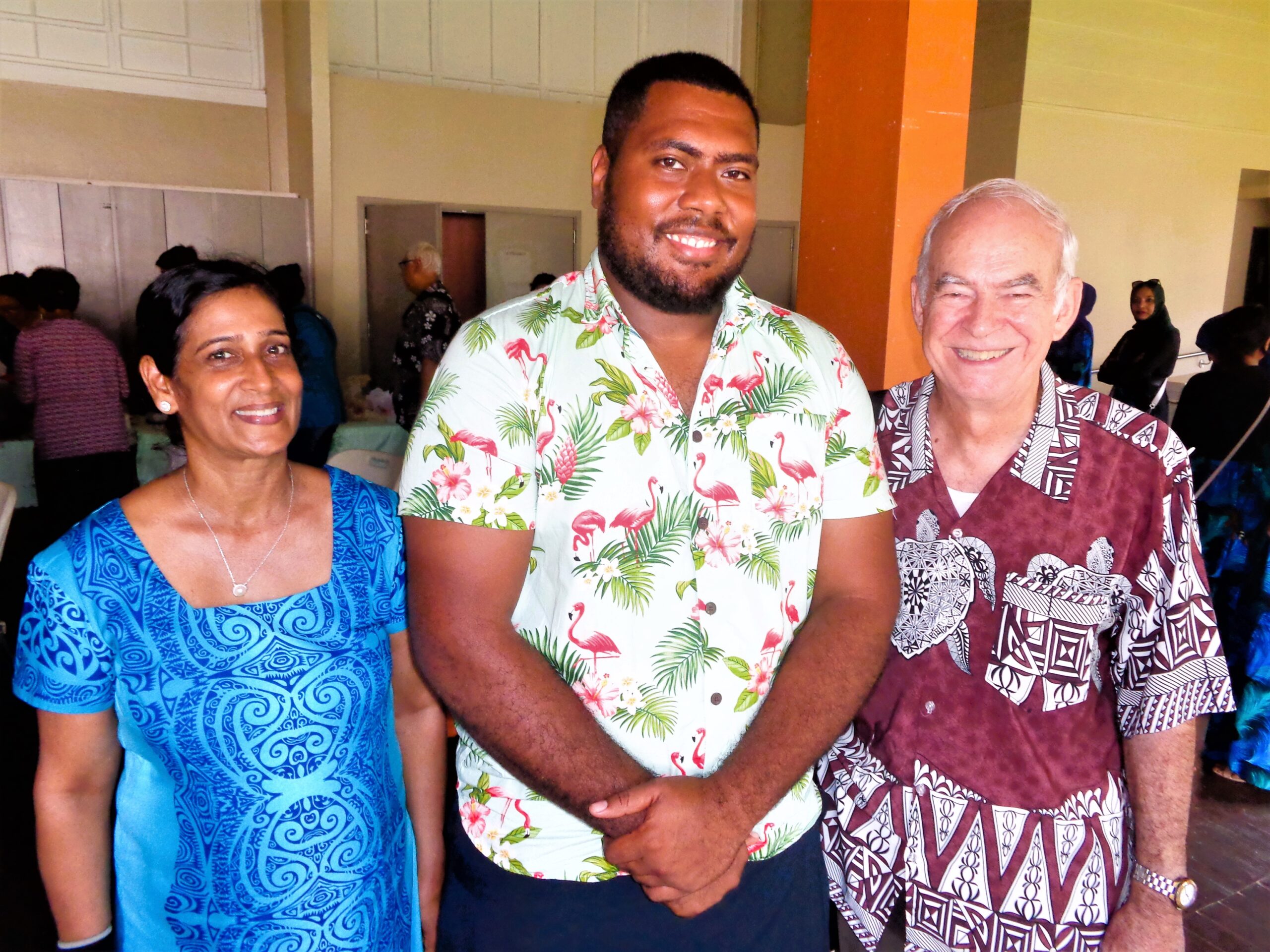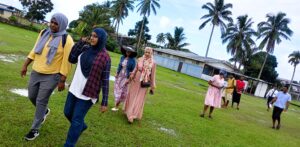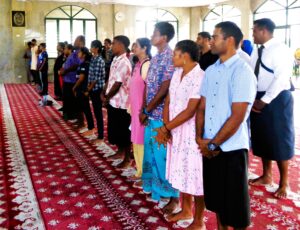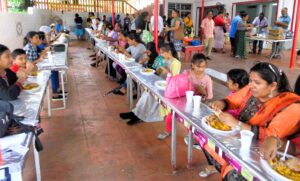
Fr Frank Hoare explains why Fiji needs interreligious dialogue and how Columban efforts are a small contribution towards working for peace in the world.
On 14 May 1987, people in Fiji were shocked when the army overthrew the elected government in a coup d’etat. The army claimed that it was saving the indigenous Fijian people and their land from the ethnic Indian people.
Confusion reigned for months. People were divided by ethnicity and by religion – indigenous Fijians are Christian and ethnic Indians are mostly Hindu or Muslim. Mistrust, suspicion and hostility were widespread.
Christians themselves were divided – some for the coup and some against it. Fundamentalist Christians influenced the military to ban any kind of work, games or even travel on Sundays for about one year. Temples and mosques were desecrated and burned. Social unrest, poverty and fear stalked the land.
There were some protests, but people also turned to prayer. A Presbyterian minister started a multi-faith organisation called Interfaith Search Fiji. Its main purpose is to seek understanding and respect between all the religions in Fiji. It holds monthly meetings for the representatives of different faith communities to present on various themes from their scriptures.

Interfaith Search Fiji is invited to lead prayers for national events and celebrations. Columban priests and seminarians have been involved in Interfaith Search.
Columbans ensure that its younger priests learn both Hindi and indigenous Fijian languages. They can then minister to indigenous Fijians and build bonds of friendship with Indo-Fijians of different religions. They are able to engage in a dialogue of life with others.
Columbans are often invited to give talks at Indian weddings and funerals. Some attend Hindu weekly prayer meetings and are invited by Hindu families pray for the sick and to visit them on their feasts.

Youth Interreligious Forum
A few years ago, Columbans in Fiji employed an Indo-Fijian, Ms Priscilla Magdalin, as coordinator of its Interreligious Dialogue efforts. Priscilla and I decided to focus on youth so as not to appear to compete with Interfaith Search Fiji. We initiated regular youth events. We invited representatives of other religions to join an organising committee. The committee meetings and youth events are held bi-monthly.
We have had programmes on many and varied topics – the meaning of festivals, prayer for the sick, fasting traditions, religious messaging through social media, respect for God’s creation.
The youth participants make presentations using banners, drama, film, songs and dance to illustrate their themes. We often include an exercise called Merry-go-round which young people enjoy as it enables them to meet 10 others, previously unknown, within a short time.
One of the most popular events has been visiting places of worship. Beliefs and rituals are explained and generous hospitality is offered. Hospitality is at the heart of interreligious understanding and dialogue.
A physical sharing of food and a spiritual sharing of faith go hand in hand. After one pilgrimage walk, a Catholic youth told his village elders that seeing the deep faith of the Hindus and Muslims had made him ashamed of his own weak commitment to Christianity. He was resolved to be more dedicated in his faith.

Developing the Dialogue
Priscilla and I are, at this time, visiting leaders of different religions and denominations to elicit their support for their youth groups to be involved in a regular and formal way. We are also inviting our Columban Companions in Mission in the Columban parish of Raiwaqa to begin regular meetings with women’s groups from other religions.
We hope that they will find projects of mutual interest to work on together and inspire each other in their faith commitments.
We would also like to find ways for students in the upper stages of secondary education to mix and mingle on occasion and to learn from each other. Holding intercultural workshops for them and sessions where they could share their personal experience of faith and prayer could be very enriching. We would like to encourage the Archdiocesan Commission for Evangelisation to give more importance to Interreligious dialogue also.
Religious congregations in Suva gather together for a Mass, some input, entertainment and food on Fiji Day, the 10th of October each year. This year was different. We invited a Methodist minister, a evangelical, a young Muslim and a Hindu priest. They each spoke for 10 minutes about their experience of faith and afterwards fielded questions from the priests, Sisters and seminarians. All found it a very interesting and valuable event.
Just before the Hindu feast of Diwali this year Fr Pat Colgan, a Columban parish priest, invited a Hindu teacher to explain the meaning of Diwali to his parishioners at the end of Sunday Mass.
Hans Kung says: “There will be no peace among the peoples of this world without peace among the world religions.” Our Columban efforts in Fiji are small contributions towards working for peace in the world.
Please support Columban projects by donating online at www.columbans.ie Alternatively you can send a donation to the Far East Office, Dalgan Park, Navan, Co Meath C15 AY2Y or call 00353 46 909 8275.